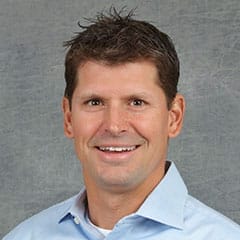Billy Quinn, W’92, sought some ownership in the businesses in which he invested. He sought it when he left investment banking behind in 1995. He sought it looking for private equity investments in Mexico during a brief stint at Hicks, Muse, Tate and Furst. He even sought it enrolled in Stanford Business School. It was when he joined NGP in 1995, and connected a passion for energy with this affinity, that he found his calling. NGP grew into a large specialty private equity firm, attracting the attention of The Carlyle Group, which acquired a stake in 2012. Quinn stepped down as managing partner from the $10.5 billion NGP. Stay tuned for his next private equity path.
WHARTON MAGAZINE: Why choose a career in private equity?
BILLY QUINN: Getting into private equity for me wasn’t something that I set out to do from day one. I always had a real desire and passion to pursue a career in finance. After graduating from Wharton, I wanted to work in investment banking for a few years, and what I learned was that I really like the finance side of the business. I had a good skill set that was well suited for a career in finance. What I didn’t like about investment banking was that you had no real ownership of the businesses that you were involved with. I knew my inclination was to do something more entrepreneurial where I could work to build companies over the long term and apply my finance and investing skills.
WM: How did that lead to your focus in the energy space?
QUINN: The last year and a half of my term in investment banking was in Dallas, and I had the fortune of meeting Richard Rainwater. To this day, Richard is considered one of the all-time great investors. Going back to the early ’90s when I joined Richard, he had the reputation of being the golden boy of Wall Street. If you want to be the best, learn from the best. I took a 90 percent pay cut to do that.
WM: There seems to be a universal career lesson there.
QUINN: For anybody trying to pursue any career, the first lesson is you should have a passion and love for what you’re doing—not only what you have a strong skill set for, but what you enjoy doing. Early in your career, don’t focus on dollars but on learning and learning from the right people.
WM: Getting back to Rainwater …
QUINN: Natural Gas Partners (NGP) had been incubated in Richard’s office. He tapped two key investment professionals to run the fund on a day-to-day basis. I was very lucky to have the opportunity to work with them, and from that a great partnership was formed. They tried to convince me not to return to business school and stay and become partner. I worked out an arrangement to be their partner in NGP and go to business school at Stanford. Then I rejoined full time to help build NGP from a small $100 million fund to a multibillion-dollar private equity franchise.
WM: What are you up to now?
QUINN: I stepped down from NGP on Dec. 31, and I am investing my own money in a variety of private deals through BQ Capital Partners. Some energy, some real estate and also a few other businesses.
WM: How do you approach investing?
QUINN: Very cautiously. That’s not to say I am not making investments because I have made three in the past six months. I don’t think as an investor you can ever be on the sidelines. You always have to look. But you have to have intestinal fortitude to say, “That’s too pricy. We worked so hard, but we’ll have to pass.”
WM: What’s the energy space in particular like now?
QUINN: Everybody’s trying to raise a fund that’s $2 billion to $6 billion. Really big funds. There is a lot of big PE money chasing deals. There are some great opportunities, but like the rest of the market, I believe patience and discipline will be rewarded. On balance, I am a seller, not a buyer.
WM: What memories stand out from your career?
QUINN: Two things. The first was when I was coming out of business school. It was at the time when oil prices were falling from the mid-20s to the low teens and the dot-com craze was going nuts. From a career decision, I stuck with what I had a passion for. I didn’t chase the latest fad. It would have been very easy to do coming out of Stanford. I didn’t do what most of my classmates were doing.
From the private equity side, there’s no one single moment. The part that I look back on and find most fulfilling is: I can give you hundreds of examples of management teams that I worked very closely with from start to exit. To see that number of people and their families change and all the people have success they never dreamed of, to say I was a part of that … those are the things that you remember.
Read the other “Pride of Private Equity” alumni profiles, as well as watch the video interviews with student leaders, here.

























